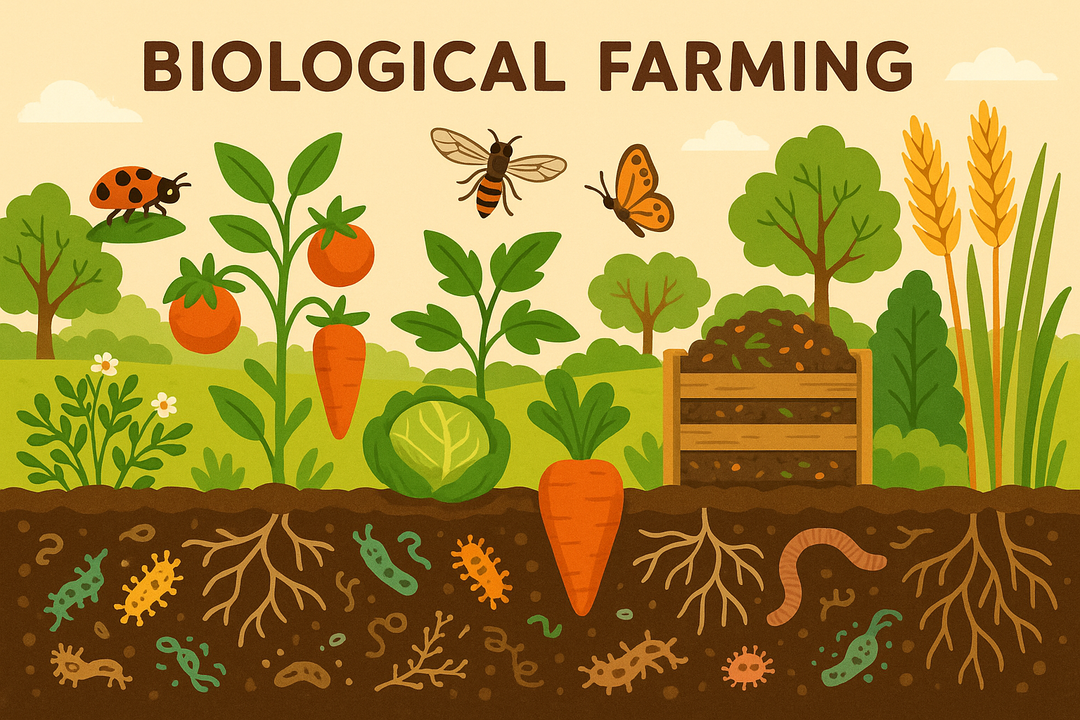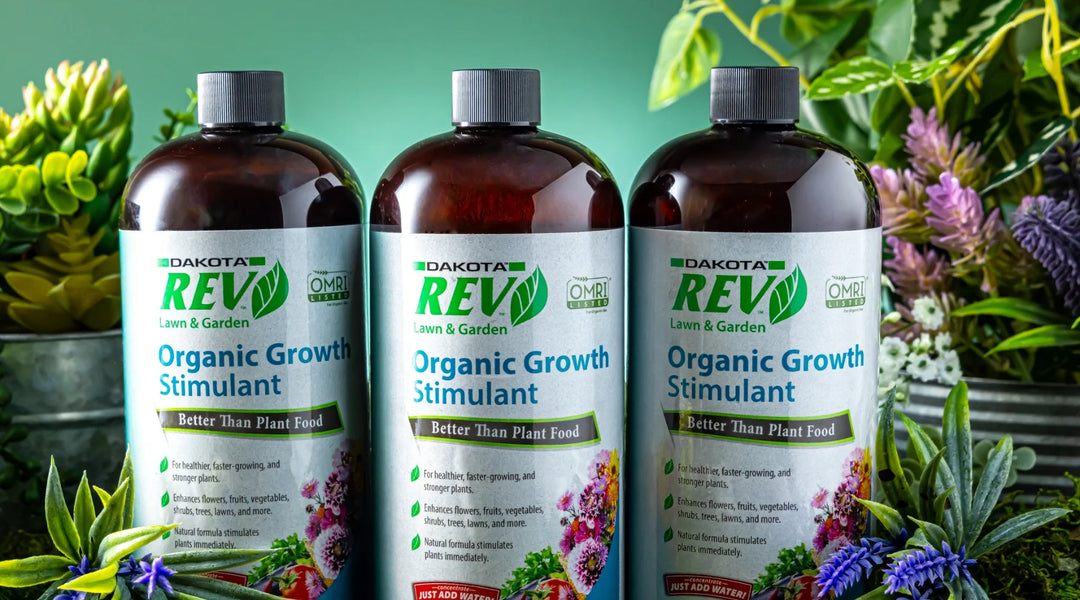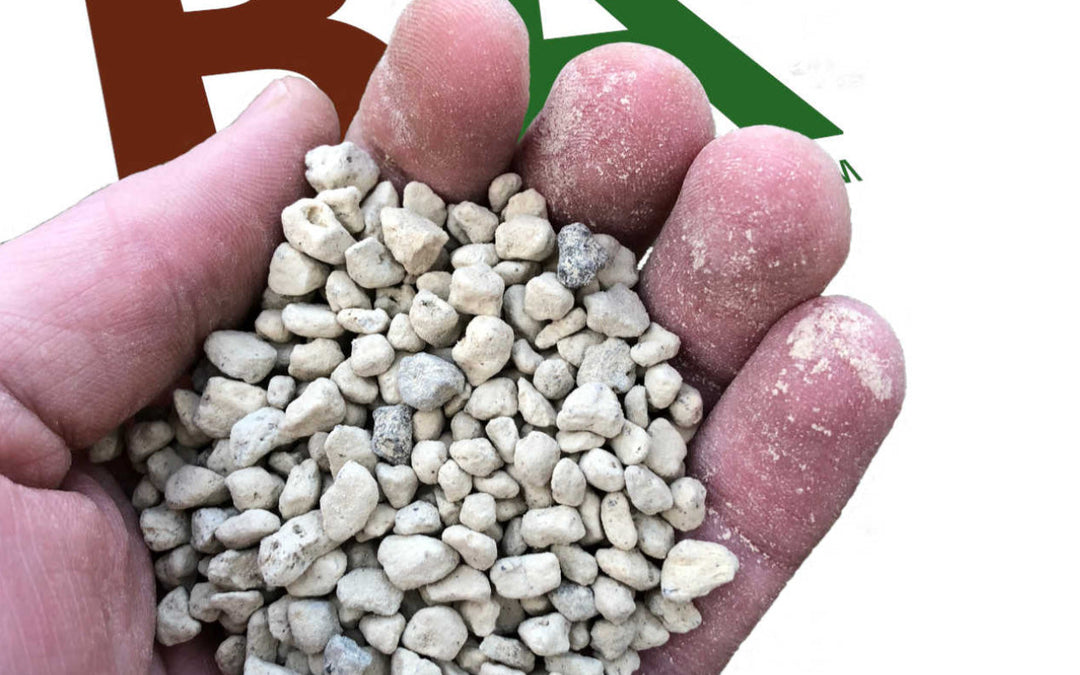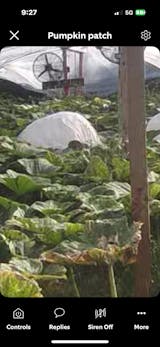Worm Castings: Soil’s Best Friend
There’s a world beneath our feet, one that many people overlook every single day. It’s a bustling metropolis of tiny architects, engineers, and scientists working together to transform the earth and keep things growing the way they should. This busy little world is the soil, and its workers are all the living microorganisms, bacteria, and earthworms.
Earthworms are one of the core components of soil health. During their lives, their tunnels and feeding habits help create air and water pockets in the soil, ensuring that there’s plenty of room and resources for plants to grow. They also break down leaves, grass, and other decaying materials. The waste created by this process is not waste at all but a valuable soil component: earthworm castings.
What are Earthworm Castings?
Worm castings are often thought of as nature’s soil conditioner because of how rich and healthy they make the earth. These worm castings are the small, dark excretions left behind by earthworms as they process organic matter. In short, earthworm castings are worm poop.
There are two main types of common earthworms responsible for producing these castings: the Lumbricus terrestris and the Eisenia fetida. Both are scientific names for very common worms and are different types of the red-brown, wiggly little worms you might see on the sidewalk after a rainstorm. They serve as food for other animals and simultaneously create nutrients for plants, so they are truly a natural wonder.
To those unfamiliar with earthworm castings, it may seem like normal excrement that should be avoided. For soil-lovers, however, worm castings are a valuable, nutrient-rich, and organic product that can be the difference between a lush, green garden and a failed patch of dry dirt.
What are the Nutritional Contents of Earthworm Castings?

Just like humans need minerals and supplements, soil does, too. There are three main components to soil nutrition: nitrogen, phosphorus, and potassium, commonly known as NPK by their atomic symbols. These three elements are often found in organic fertilizers. Nitrogen is responsible for helping plants photosynthesize, making important sugars and food products to survive. Without it, plants can turn very pale, eventually turning shades of yellow as they meet their demise.
Phosphorus is just as important, working hard to help plants store their nutrients appropriately so they can survive longer in the events of natural hardships, like droughts or harsh winds. Potassium, the K in NPK, has a similar effect in soil as it does in humans. Potassium helps plants fight common diseases like tomato rot and early blight.
Earthworm castings contain high concentrations of all three, making it an all-around effective fertilizer and source of vitamins and minerals for plants.
Not only are they rich in NPK, but they also contain other vital elements for plants, such as:
- Calcium
- Magnesium
- Zinc
How Can Earthworms Help Soil?

Even without their castings, earthworms are important to soil because of their movement throughout the earth. When worms wiggle through the dirt, they help create channels and pockets. These pockets are key for facilitating aeration and water retention, both essential factors in soil health.
Densely packed soil has no room for water and air to penetrate its thick, heavy layers, contributing to soil disease and stunted plant growth. With more aeration and the ability to retain water for longer, plants can weave their roots deep within the soil and find higher concentrations of nutrients.
Worm castings are just a small part of what earthworms can do for your lawn or garden. Earthworms are vital components of soil health during each and every phase of life.
How Does Weather Impact Earthworm Castings?
Earthworms are extremely important but are, unfortunately, highly affected by the weather and seasons. This is one of the reasons why using earthworm castings is so important – their use helps fight climate change, which is the very thing that can kill them.
Excessive droughts can cause earthworms to dry up and eventually die, even affecting the cocoons that contain eggs. Alternatively, too much rain can drown earthworm populations and make soil hold too much water. If the ground is too wet or too dry, worms have a hard time burrowing through the soil to do their jobs.
Sustainable Gardening with Earthworm Castings
Sustainability is extremely important to consider, and using all-natural fertilizers and organic weed killers is a wonderful first step in creating sustainable gardening practices. Not only do they keep your garden healthy from year to year, but they contribute to a healthier planet.
Earthworm castings align perfectly with the principles of organic farming. Their chemical-free composition makes them a valuable resource for organic farmers seeking to enrich their soil and improve crop yields without relying on synthetic products and potentially harmful chemicals. This is also great for soil regeneration. Soil can become overworked and depleted, but earthworm castings revitalize the earth, improve fertility, and build good soil structure.
Finally, worm castings can be a game-changer in regions prone to drought. By improving the soil’s ability to hold water, farmers can better weather dry spells and reduce the need for excessive irrigation. Reducing water consumption is always a great thing to work towards when farming sustainably.
Troubleshooting Garden Challenges with Worm Castings

Common gardening and farming troubles are very easily addressed with worm castings. The beneficial microorganisms present in earthworm castings not only improve soil health but can also play a role in pest management. Some of the elements and compounds produced in the creation of worm castings are natural pest deterrents, keeping pesky, unwelcome guests far away.
Another common garden or lawn challenge people face is dependency on chemicals. Synthetic fertilizers and pesticides can sometimes be effective, but they are generally terrible for the planet and can create long-term damage. Once you start with the harsh products, sometimes your outdoor space may struggle to thrive without them. If you enrich your soil from the beginning, you reduce the need for chemicals in the first place.
Finally, many farmers and gardeners struggle with navigating the realm of gardening products. With so many things available, how is one supposed to decide what their soil needs and doesn’t? Here’s the huge bonus of worm castings: every soil type can benefit from it. Since it is all-natural, you’ll never hurt your lawn or garden using castings. Though there’s a recommended amount for best results, you really can’t mess up quantities too badly. It’s foolproof!
Composting with Worm Castings

Composting is a process that takes various waste products and turns them into garden treasure. It’s also quite easy to do.
You will need the following supplies:
- Plastic or metal bin
- Twigs and paper
- Organic material
- Worm castings
Just take your normal food waste, like citrus peels, eggshells, and any leftovers that you might otherwise throw away, and add them to a bin lined with a bed of sticks and some paper. Alternate wet and dry ingredients, then turn your compost bin every few days to ensure proper circulation.
The product that is created from composting is called humus and is a dark, crumbly, nutrient-dense substance that can be used to fertilize and sustain your crops. Adding earthworm castings to your compost pile helps your humus mature faster and makes it richer, resulting in a sustainable, personalized fertilizer perfect for all your planting goals.
Where to Use Earthworm Castings

With such impressive qualities and characteristics, worm castings can be used any place outdoors but are especially helpful for:
- Lawns
- Vegetable gardens
- Saplings
Covering your outdoor space in a lush, beautiful green lawn is easier than ever with earthworm castings. Not only do worm castings boost nutrients and improve soil structure, but they can help your lawn remain stable during unstable conditions. Gone are the days of a huge rainstorm wiping out your grass; worm castings help keep things under control, maintaining homeostasis in your yard.
Additionally, saplings and vegetable gardens benefit greatly from the use of earthworm castings because they both require extra nutrients. Just like children, young trees and vegetable gardens require extra nutrients up front to encourage growth and longevity. Earthworm castings can be great for both, giving them the boost they need to flourish.
How to Apply Worm Castings
There are several ways to apply earthworm castings to your space, and the choice is entirely up to you. It partly depends on your goals for your garden or lawn. Whether you’re trying to give a quick boost of nutrition or get your soil ready for spring planting, earthworm castings can help.
One method of applying earthworm castings is called a broad application, which is exactly what it sounds like. Broad application is simply a large-scale application of worm castings to the surface of your lawn or garden, typically over top of any seeds. This can be done with dry castings, or you can soak them and then use a sprayer to apply the solution. As the rain and irrigation wash over the plants, the worm castings gradually release their nutrients to enrich roots.
The other main method is incorporating the earthworm castings directly into the soil before plants are present. This is great for gardens specifically because it can be done when you till your land in preparation for planting. This can also be highly successful with container gardening. Enriching the soil before planting gives all your crops a higher likelihood of success.
Can I Combine Castings with Other Products?
Earthworm castings work best when combined with other natural fertilizers, herbicides, and pesticides. Combining several different organic products creates a powerful toolkit for environmentally friendly gardening and farming practices. All the different organic products release their contents on different timelines, ensuring that crops have a constant source of nutrients.
For example, earthworm castings tend to release their nutrients very slowly, while fertilizers have a quicker effect. Thus, if you combine organic fertilizer with the worm castings, your garden will have immediate and long-term support. If you’re in the market for an herbicide to complement your worm castings, this weed-killer concentrate will do the job.
Sourcing Earthworm Castings
One of the most straightforward ways to source worm castings is by purchasing them from reputable suppliers. Good castings should be dark, crumbly, and have a rich, earthy smell. The darker the castings, the more nutrient-rich they tend to be.
Another way to source earthworm castings is to form your own vermicomposting system. This DIY approach involves setting up a worm bin at home, feeding it scraps as you would to a normal compost bin, and watching the magic happen. Over time, the worms will transform the organic matter into the high-quality soil conditioner we love.
Vermicomposting is a cost-effective, environmentally friendly way to create earthworm castings, but the process can be slow, and unless you are able to create a large system, the yield can be small. If you’re looking for earthworm castings for a large garden or yard, it may be best to buy them.
Storing Your Earthworm Castings

Since buying in bulk is one of the most cost-effective ways of purchasing worm castings, it’s important to understand how to store them to preserve their nutrient potency and microbial activity over time. Castings typically come in a bag, but if you aren’t using them all at once, it’s imperative that you find another container. Any plastic or metal container with an airtight lid will do the trick.
Next, always keep your worm castings dry until you are ready to use them. Unintentional moisture in storage can lead to clumping and the growth of harmful bacteria and unwanted microorganisms, like mold and mildew. If your castings do become wet before you’re ready to use them, spreading them out in the sun to dry should help.
Finally, make sure to store them in a cool environment, away from direct sunlight and extreme temperature variation. Check on your worm castings every now and then to ensure things still look great and they are free of any strange growths or odors.











Leave a comment